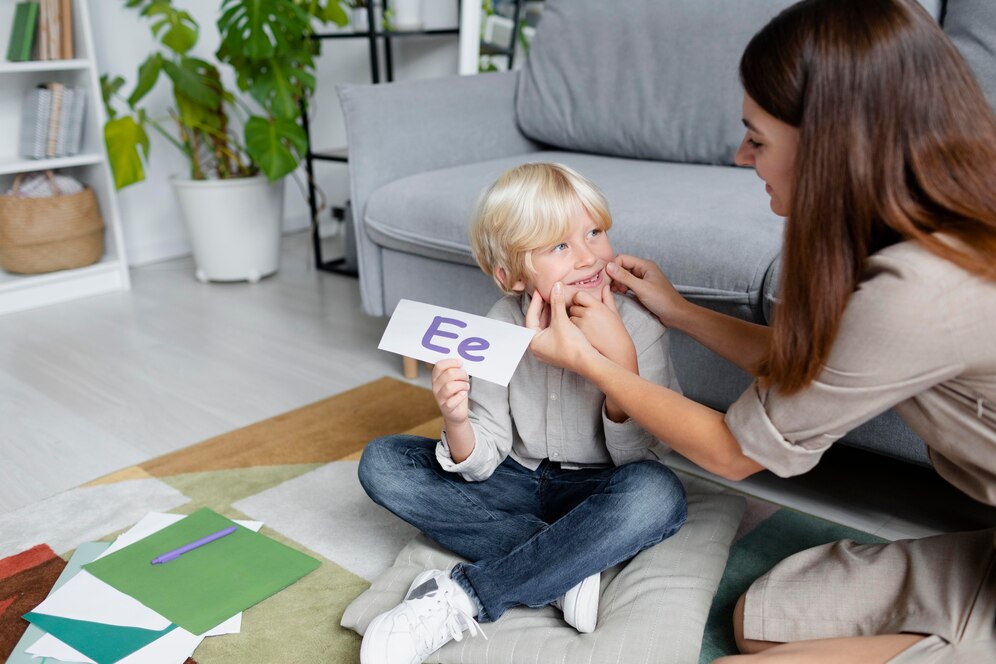When we hear the word dyslexia, we usually think of reading struggles—mixing up letters, slow decoding, or spelling issues. But many parents wonder: Does dyslexia affect speech too? Can a child’s pronunciation, vocabulary, or spoken fluency be influenced by this common learning difference?
The short answer: yes, it can. While dyslexia primarily affects reading and writing, its impact on speech and verbal communication is very real for many children. In this article, we’ll explore how speech and dyslexia are connected, what “verbal dyslexia” might look like in daily life, and how to support kids who face these challenges.
Understanding the Link Between Dyslexia and Speaking Difficulties
Dyslexia and speaking go hand in hand more often than many people realize. Because dyslexia affects how the brain processes language, it doesn’t just show up when a child is reading—it can also show up when they’re talking.
Children with dyslexia may:
- Struggle to find the right word during conversations
- Mispronounce longer or unfamiliar words
- Speak in shorter, simpler sentences to avoid complex vocabulary
- Pause frequently when speaking because you’re mentally “searching” for language
This is sometimes called speech dyslexia or verbal dyslexia, though these aren’t official diagnoses. They’re helpful terms for describing the real-world challenges kids with dyslexia may experience when speaking.
Why Does Dyslexia Affect Speech?
One reason why does dyslexia affects speech is that it impacts the brain’s phonological system—this is the system that helps us process sounds in spoken language. If a child has trouble identifying or manipulating the sounds in words (like rhyming or breaking words into syllables), that can lead to both reading issues and difficulty expressing themselves out loud.
Think of it this way: if reading and speaking both rely on the brain’s ability to manage sounds and language structure, then a challenge in one area may naturally show up in the other.
This can also affect a child’s pronunciation ability. They may mispronounce words they’ve read but never heard spoken aloud, or they may struggle to remember how certain words “sound” in their head before speaking.
Common Speaking Patterns Seen in Children with Dyslexia
While every child is different, here are some speaking traits that may appear in kids with dyslexia:
- Using vague words like “thing” or “stuff” when they can’t recall specific terms
- Hesitating or starting and stopping mid-sentence
- Substituting easier words for harder ones they know but can’t retrieve
- Saying the first part of a word but dropping the rest (e.g., “ele–” instead of “elevator”)
- Struggling with the pronunciation of multisyllabic words
These issues are not a sign of low intelligence—they’re part of how the impact of dyslexia affects everyday communication.
Read More: What are Wade and Wist in the Wilson reading system?
Is It the Same as a Speech Disorder?
Not quite. While speech dyslexia may look like a speech delay or disorder, it’s rooted in how the brain processes and organizes language. Children with dyslexia usually understand language just fine, but expressing it clearly, especially under pressure, can be difficult.
That’s why speech therapy and structured literacy instruction often work best together. The former helps improve articulation and fluency, while the latter focuses on language comprehension, word retrieval, and sound awareness.
Speaking Challenges That Affect Confidence
Children who struggle with how dyslexia affects speech may avoid raising their hand, reading aloud, or answering open-ended questions—not because they don’t know the answer, but because they’re worried about how they’ll say it.
This can lead to:
- Lower self-esteem
- Social anxiety
- Misunderstanding by peers or teachers
- A feeling of “shutting down” when asked to speak
Helping children feel confident in both their written and spoken communication is key to their long-term success, not just in school, but in everyday life.
What You Can Do to Support a Child Struggling with Speech and Dyslexia
Here are a few practical ways you can help at home:
- Give them time. Don’t rush their speech—pausing shows you’re listening.
- Play word games. Rhyming, syllable clapping, and tongue twisters can boost sound awareness.
- Model clear speech. Repeat tricky words slowly and let them try again.
- Encourage storytelling. Let them narrate their day or describe pictures to build fluency.
- Consider support. A combination of reading intervention and speech therapy often yields the best results.
Final Thoughts
So, does dyslexia affect speaking? Yes—it can impact how children express themselves verbally, how they pronounce words, and how comfortable they feel speaking in social or academic situations. These challenges are a natural part of how dyslexia affects the brain, not something to feel ashamed of or ignore. With the right support, children can improve both their speech and literacy skills and gain confidence in the process.
At Learnability, we specialize in working with children who experience reading and speaking difficulties related to dyslexia. Our personalized, at-home programs are guided by certified specialists and built on evidence-based methods like Orton-Gillingham and Lindamood-Bell®.
Contact us today to learn how we can help your child strengthen their communication skills and feel more confident, both on paper and out loud.


